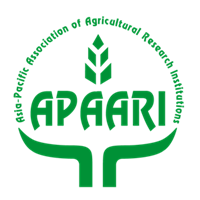ICTs and Empowerment of Indian Rural Women
What can we learn from ongoing initiatives? There has been a lot of interest during the last two decades in employing Information and Communication Technologies (ICTs) for achieving development. While many of these initiatives have benefited rural women by way of access to new information and new employment opportunities, women still face a number of constraints in accessing ICTs. This paper explores the role of ICTs in empowering Indian rural women, through a review of ICT initiatives in India. The paper concludes that, while most of the ICT initiatives are disseminating new information and knowledge useful for rural women, many are not able to make use of it, due to lack of access to complementary sources of support and services. Among the varied tools, the knowledge centres and the community radio were found to have the greatest potential in reaching women with locally relevant content Therefore, strengthening the ICT initiatives of such organizations can go a long way in empowering rural women.
Related Resources
Landscape level characterization of seasonal floodplains under community based aquaculture: illustrating a case of the Ganges and the Mekong Delta
This working paper represents work‐in‐progress of the CBFC project (Community‐based Fish Culture in Seasonal Floodplains and Irrigation Systems), a research project supported by the Challenge Program on Water and Food (CPWF), with the aim of increasing productivity of seasonally occurring water bodies through aquaculture.The...
System of Rice Intensification in India: Innovation History and Institutional Challenges
This report documents the history of the systems of rice intensification (SRI, for short) in India in the last few years and presents some of the institutional changes and challenges that SRI throws up. The first part looks at the...

Report on Prioritization of Demand-driven Agricultural Research for Development in Bangladesh
The International Food Policy Research Institute (IFPRI) partnered with the Asia-Pacific Association of Agricultural Research Institutions (APAARI) in 2011 to conduct a series of policy dialogues on the prioritization of demand-driven agricultural research for development in South Asia. Dialogues were conducted with...
Applying Innovation System Principles to Fodder Scarcity: Experiences from the Fodder Innovation Project
Learning to evaluate capacity development and collaborative learning about community-based natural resource management: lessons from Asia
This paper, part of the Social Sciences Working Paper Series, presents studies undertaken by nine community-based, natural resource management (CBNRM)-oriented organizations in China, Viet Nam, the Philippines and Mongolia. The partner organizations, representing three broad types: academic, regional network, and...


